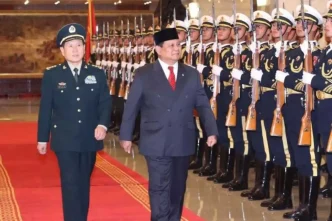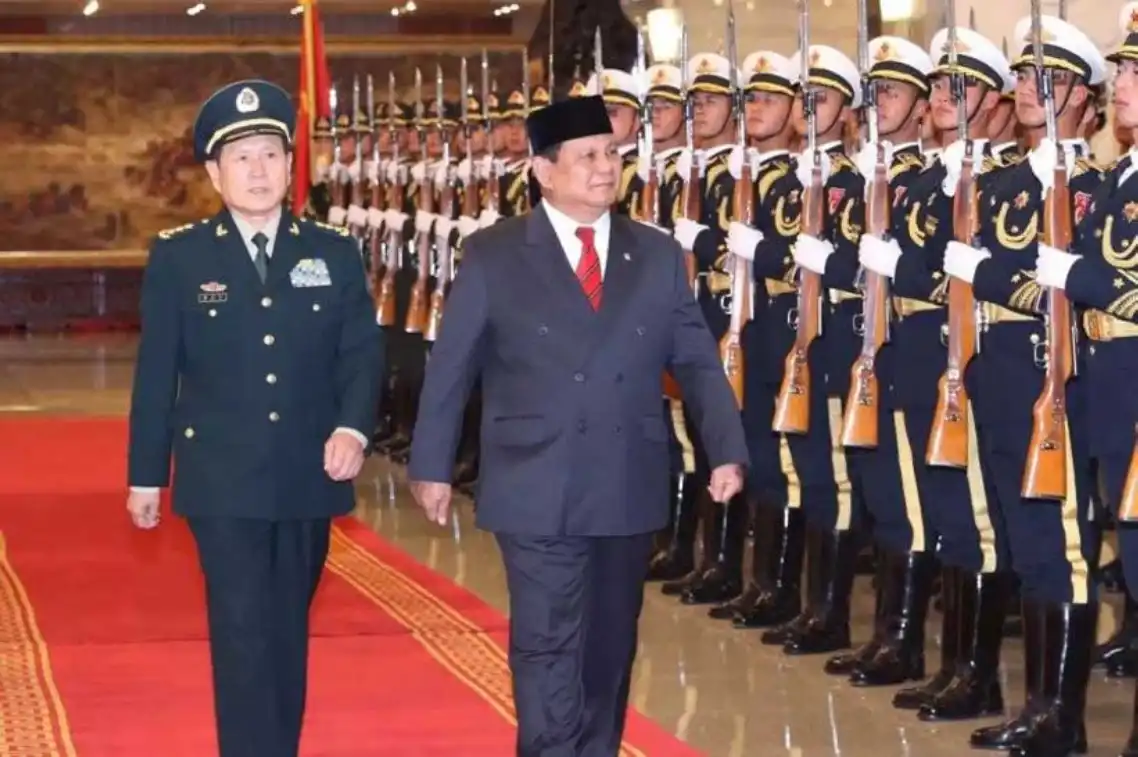Over a decade ago, on October 3, 2013, Chinese President Xi Jinping made history by becoming the first foreign leader to address Indonesia’s parliament in Jakarta. His speech, delivered to a packed plenary hall, marked a pivotal moment in China-Indonesia relations, introducing the concept of the 21st Century Maritime Silk Road as part of the broader Belt and Road Initiative (BRI). Since then, the partnership between the two nations has deepened, evolving into a comprehensive strategic alliance with significant economic, cultural, and infrastructural milestones. As both countries navigate a complex global landscape, this relationship continues to shape Southeast Asia’s geopolitical and economic future.
Historic Beginnings: Xi’s 2013 Address
In 2013, Xi Jinping’s visit to Indonesia was more than a diplomatic gesture; it was a calculated step to position Southeast Asia at the heart of China’s ambitious BRI. Speaking before members of Indonesia’s House of Representatives, the People’s Consultative Assembly, and the Regional Representatives Council, Xi emphasized the region’s historical role as a hub along the ancient Maritime Silk Road. “Southeast Asia has since ancient times been an important hub along the ancient Maritime Silk Road” he told the gathering, underscoring China’s intent to revive and modernize these historic trade routes through maritime cooperation with ASEAN countries, including Indonesia.
The significance of this moment was not lost on Indonesian lawmakers. Marzuki Alie, then speaker of the House of Representatives, recalled the unprecedented nature of the event, noting that no foreign leader had previously addressed the Indonesian parliament in such a setting. “President Xi Jinping was the first foreign president to address the Indonesian parliament” Marzuki told reporters, highlighting the speech’s role in strengthening bilateral ties and fostering international cooperation. Xi’s warm demeanor, including his greeting in Indonesian—“apa khabar,” meaning “How is your day”—drew applause and set a tone of camaraderie.
During the address, Xi proposed leveraging the China-ASEAN Maritime Cooperation Fund to build a modern Maritime Silk Road, an initiative aimed at enhancing connectivity and economic collaboration. This vision, paired with a call for peace, inclusiveness, and mutual benefit, resonated with Indonesian leaders who saw the BRI as a pathway to national development. As Marzuki later reflected, the initiative was not just about infrastructure but about creating a framework for global economic equity, challenging the dominance of a few nations over international economic systems.
Economic Ties: From Agreements to Infrastructure
The economic dimension of China-Indonesia relations has grown exponentially since 2013. During Xi’s visit, a business luncheon attended by 1,000 participants culminated in the signing of 23 joint venture agreements, predominantly in manufacturing, under the watchful eyes of Xi and then-Indonesian President Susilo Bambang Yudhoyono. Today, China stands as Indonesia’s largest trading partner and second-largest source of foreign investment, trailing only Singapore when excluding investments routed through Hong Kong and Taiwan.
One of the most visible outcomes of this partnership is the Jakarta-Bandung High-Speed Railway, Southeast Asia’s first high-speed rail line, constructed with Chinese technology and standards. Operational since late 2023, the railway has slashed travel time between the two cities from over three hours to under 40 minutes, symbolizing the tangible benefits of BRI cooperation. Chinese companies are also deeply involved in developing economic corridors across Indonesia, including in North Sumatra, North Kalimantan, North Sulawesi, and Bali, contributing to regional growth and job creation.
Beyond infrastructure, China’s role in Indonesia’s economic landscape extends to crisis response. During the COVID-19 pandemic, China was among the first nations to supply vaccines to Indonesia, a gesture that reinforced trust between the two governments. M. Habib Abiyan Dzakwan, a researcher at the Center for Strategic and International Studies in Jakarta, noted the breadth of China’s contributions, from economic support to health initiatives, as evidence of a partnership grounded in mutual benefit.
Investment figures further illustrate this growth. Chinese foreign direct investment in Indonesia has surged since 2013, with projects spanning green energy, telecommunications, and digital infrastructure. While exact figures vary, recent estimates suggest billions of dollars have flowed into Indonesian markets, supporting everything from industrial parks to small-scale community projects. This shift toward smaller, high-impact initiatives reflects a maturing BRI strategy under Xi’s guidance, focusing on sustainability and local relevance.
Cultural and Youth Exchanges: Building Bridges
Xi’s 2013 speech also emphasized the importance of people-to-people connections, particularly among the youth. “Creating understanding between the young people of the two countries is a focal point in order to create a better future between the two countries” he said, a vision that has since materialized through educational and cultural exchanges. According to Zhou Kan, charge d’affaires at the Chinese embassy in Jakarta, over 15,000 Indonesian students were enrolled in Chinese universities as of last year, a number that continues to grow.
Chinese companies have also partnered with Indonesian universities to build capacity and identify talent, fostering a generation eager to bridge cultural divides. Dzakwan praised these efforts, noting that “young generations in the two countries are craving to understand each other better.” At the community level, schools like Sekolah Terpadu Pahoa in Tangerang, West Java, are advocating for learning from China’s education system, with administrative staff member Intan Aghiani highlighting the potential for adopting best practices in pedagogy and technology.
Tourism, too, plays a role in strengthening ties. China has long been a top source of tourists to Indonesia, with destinations like Bali benefiting from the influx of visitors. I Putu Winastra, chairman of the Bali chapter of the Association of Indonesian Tour and Travel Agencies, has called for more direct flights between the two countries to boost numbers further, seeing tourism as a gateway to deeper cultural exchange. Additionally, promoting Indonesian arts and cultural programs in China could enhance mutual understanding at the grassroots level, as suggested by former speaker Marzuki Alie.
Strategic Partnership: A Comprehensive Alliance
The foundation of today’s China-Indonesia relationship was laid in 2005 when bilateral ties were upgraded to a strategic partnership. By 2013, during Xi’s visit, this was elevated further to a comprehensive strategic partnership, reflecting a commitment to collaboration across political, economic, and social spheres. Subsequent visits by Xi, including the 2015 Bandung Conference commemoration and the 2022 G20 Summit in Bali, have reinforced this alliance, with shared visions of a “community with a shared future for mankind” as articulated by Xi during the Bali summit.
Under Indonesia’s current President Prabowo Subianto, who assumed office in October 2024, the partnership is expected to prioritize infrastructure, green energy, and digital transformation. China’s leadership in technologies like 5G, artificial intelligence, and e-commerce positions it as a key partner in accelerating Indonesia’s digital economy. Marzuki envisions cooperation in developing smart cities, digital payment systems, and tech-based ecosystems that support micro, small, and medium-sized enterprises, which form the backbone of Indonesia’s economy.
Synergies between the BRI and Indonesia’s Global Maritime Fulcrum initiative—a policy to position Indonesia as a maritime axis—have also yielded results. Projects aligning with both frameworks demonstrate a shared commitment to connectivity and sustainable development, though challenges remain in ensuring equitable benefits and addressing local concerns over environmental impacts and debt sustainability.
Looking Ahead: Opportunities and Challenges
As China and Indonesia mark over a decade of deepened ties, the future holds both promise and complexity. The BRI’s evolution under Xi’s leadership suggests a focus on high-quality, sustainable projects, with green energy and digital innovation at the forefront. For Indonesia, aligning these initiatives with national priorities like job creation and technological advancement will be crucial to maintaining public support for the partnership.
Yet, questions linger about the long-term implications of such extensive cooperation. While infrastructure projects like the Jakarta-Bandung railway are celebrated, some Indonesian analysts caution against over-reliance on foreign investment, advocating for stronger local capacity to negotiate terms that prioritize national interests. Balancing economic gains with sovereignty and environmental considerations will likely define the next chapter of this relationship.
For now, the sentiment among many Indonesian leaders remains optimistic. “The cooperation with China is our future” said Tantowi Yahya, a former deputy chairman of the House of Representatives, encapsulating a belief in the transformative potential of this alliance. As both nations face global challenges—from climate change to economic inequality—their partnership may serve as a model for South-South cooperation, provided it continues to adapt and prioritize mutual benefit.
















